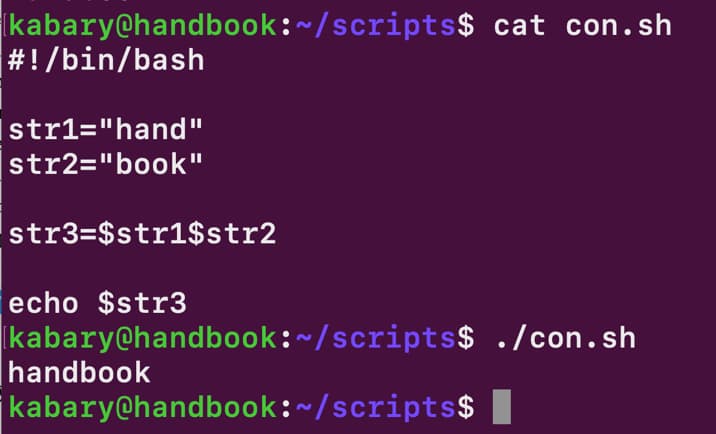


They can also be used to randomly assign identifiers to objects or records in a database, which can help to ensure that the identifiers are unique and not predictable. Random strings are useful because they are difficult to guess or predict, which makes them suitable for use as passwords or other forms of authentication. This will generate a random string of length 20 that only includes uppercase letters and digits. I try to write bash to generate string,combine lowercase letters+ 6 random characters +lowercase letters together.
BASH GENERATE RANDOM STRING PASSWORD
If you require genuinely random data, cat /dev/random instead of /dev/urandom. Learn to generate random numbers, strings & password reset tokens. For example, to generate a random string of length 20, you can use the following command: 14 Answers Sorted by: 136 Assuming you are on a linux, the following should work: cat /dev/urandom tr -cd 'a-f0-9' head -c 32 This is only pseudo-random if your system runs low on entropy, but is (on linux) guaranteed to terminate. In fact, you do not even need to use dd here. The problem starts here, and is related to this 256 byte limit. Let's look at each of the commands: dd if/dev/urandom bs256 count1 2> /dev/null This will read a single 256 byte block from /dev/urandom, a cryptographically secure random source. You can adjust the length of the random string by changing the number passed to the -base64 option. 1 Answer Sorted by: 26 No, it's not entirely secure. This will generate a random string of length 10 that only includes uppercase letters and digits. For example, to generate a random string of length 10 that only includes uppercase letters and digits, you can use the following command: You can also use the tr command to remove any characters that you don’t want to include in your random string. Here is an example of how you can generate a random string of length 10: openssl rand -base64 10 This will generate a random string of length 10 using base64 encoding. The output will be a string of characters that includes letters, numbers, and special characters. To generate a random string in Bash, you can use the openssl command and the base64 encoding function. This will generate a random string of length 10 using base64 encoding. Here is an example of how you can generate a random string of length 10: To generate a random string in Bash, you can use the openssl command and the base64 encoding function. For example, a random string might be generated using only uppercase letters and digits, or it might include a combination of letters, digits, and special characters. The length and character set of a random string can be specified in the generation process.

Random strings can be generated using a computer program or a physical random number generator.


 0 kommentar(er)
0 kommentar(er)
